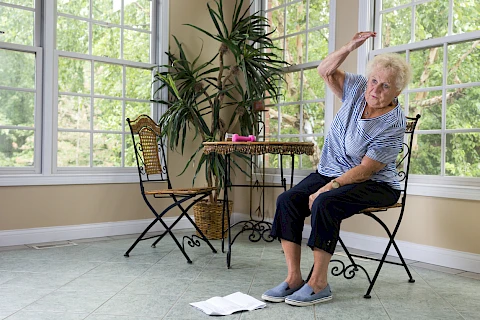
Parkinson's disease is a progressive neurological disorder that primarily affects movement. Common symptoms include tremors, stiffness, and difficulty with balance and coordination. These symptoms can vary from person to person, even changing with the seasons. Understanding how seasonal transitions affect Parkinson's symptoms is crucial for effective management.
The Impact of Seasonal Changes on Parkinson's Symptoms
As the seasons change, so can the way Parkinson's symptoms present themselves. Temperature fluctuations can have a significant impact. Colder temperatures may exacerbate stiffness and slow movement. On the other hand, warmer months can lead to fatigue and overheating.
Changes in daylight hours can also influence mood and energy levels, sometimes leading to seasonal affective disorder (SAD). Being aware of these potential changes is the first step in proactive management.
Managing Temperature Sensitivity
Temperature sensitivity is a common issue for those with Parkinson's. Layer clothing as needed and choose thermal materials to stay warm during colder months. Keeping your home at a comfortable temperature with efficient heating systems can also help.
In warmer seasons, you need to stay cool. Wear light, breathable fabrics and use fans or air conditioning to regulate indoor temperatures. Adjusting your clothing and home environment according to the weather can improve comfort and aid in symptom management.
Adjusting Medication Timing
The effectiveness of Parkinson's medications can vary with the seasons. Some individuals find that their medication works differently as temperatures change. Understanding your unique response to certain medications during different seasons is vital.
Work closely with healthcare providers to adjust medication timing as needed. Routine check-ins with your doctor will help keep the treatment effective. Regular medication reviews will also ensure your treatment plan remains optimal, especially during seasonal transitions.
Maintaining Exercise Routines Year-Round
Exercise is vital for managing Parkinson's symptoms, offering physical and mental health benefits. Maintaining a routine throughout the year can pose challenges, but with some adjustments, you can stay active no matter the season.
During colder months, look for indoor exercise options like yoga, stretching, or using a stationary bike. Gyms or community centers can offer warm environments and structured classes.
In warmer months, take advantage of outdoor activities like walking, jogging, or gardening. Just be mindful of the heat and stay hydrated. Adapt your routines to fit the season, ensuring consistency in staying active, which can significantly improve symptom management. Remember to check with your doctor before starting a new form of exercise.
Senior Helpers Offers Specialized Care for Seniors With Parkinson's and More
Managing Parkinson's symptoms effectively throughout the changing seasons is a challenge, but with proactive strategies and the right support, it is possible. If you can benefit from personalized support while navigating the challenges of Parkinson’s during seasonal transitions and beyond, Senior Helpers Western Kentucky can help. We offer top-notch Parkinson’s care and tailored in-home support for seniors in Hopkinsville, Paducah, Murray, and Madisonville. Contact us today to learn more about our services and how we can help you live comfortably and confidently throughout the seasons.